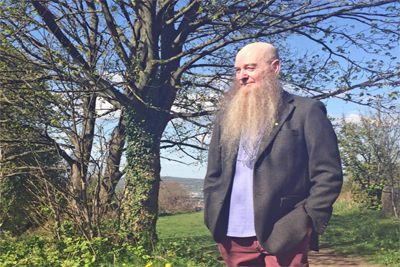30 June – 4 July 2025
Welcome videos from Kathryn Marsden and Patrick Wood.
Innovation through co-production: Kathryn Marsden OBE and Kevin Minier
A welcome message from Patrick Wood
Introduction: Innovation through co-production
Monday 30 June marked the start of the Social Care Institute for Excellence (SCIE)’s Co-production Week 2025, a celebration of the power of co-production to design and develop better ways of doing things in social care.
It highlighted the benefits of co-production, shares good practice, stimulates debate and promotes the contribution of people who use services and carers in developing better social care.
Co-production is about working in equal partnership with people using services, carers, families and citizens, offering the chance to transform social care and health provision to a model that offers people real choice and control.
This year’s theme ‘Innovation through co-production’ focused on exploring how co-production can help innovation and how to better demonstrate the impact and difference it makes. We aim to uncover new insights into how co-production fuels innovation in social care, sharing ideas and learning across the co-production community.
We showcased innovative projects supporting unpaid carers, with potential to transform their experience of social care and demonstrate the value of investment in this area. SCIE has been providing hands-on support for the Department of Health and Social Care’s Accelerating Reform Fund (ARF), which has funded over 120 projects requesting co-production from the start, aiming to improve adult social care through innovation and scaling while kickstarting support for unpaid carers. Around 70% of projects have an element supporting unpaid carers; 73 are wholly focused on this.
We revealed interesting findings on how co-production has helped innovation, along with barriers, enablers and recommendations to help shape the future of social care. With the Casey Commission report not due until 2028, immediate solutions are necessary to deliver for unpaid carers and stabilise the sector – these projects are delivering learning to solutions that can be deployed now.
We also looked at the role of AI (artificial intelligence) and how equity, diversity and inclusion (EDI) links to social justice and can create ways to co-produce more innovatively
Co-production Week 2025: Innovation through co-production
The theme of Co-production Week 2025 was Innovation through co-production. The Social Care Institute for Excellence (SCIE) will be aiming to uncover new insights into how co-production fuels innovation in social care and sharing ideas and learning across the co-production community.
Innovation in social care refers to developing and applying new ideas, practices, models, or technologies that improve the quality, accessibility, efficiency, and outcomes of social care. At its heart, co-production means people who draw on care and support, including unpaid carers, working in genuine partnership with decision-makers to design and deliver services that are informed by and recognise the power of lived experience.
Successful innovation proceeds from solid foundations. Effective co-production is grounded in the principles of accessibility, diversity, equality and reciprocity, or getting something back for putting something in. Innovation isn’t just about products; it’s also about process. People with lived experience aren’t just there to say what they think about the fabulous ideas of professionals. We’re there to make meaningful contributions, to decide on an equal basis what is talked about, what is done, and who does it. We’re there to take leadership roles, not to make up the numbers.
I’m pleased that we will be showcasing some case studies during the week of the innovative Accelerating Reform Fund projects, as this programme specifically required all projects to involve co-production from the start. Let’s hope all such funds in future follow this practice.
I’m looking forward to the opportunity to learn what innovation means to people with lived experience and to hear about the part they are playing in leading innovation in co-production. One of the events during the week has been specifically designed to explore these issues. I’m sure that John Evans would have made a valuable contribution to this discussion. John was a pioneer of the Disability movement who was deeply committed to co-production. He was involved in the SCIE Co-production Network from the start and was a former chair of the SCIE Co-production Steering Group. Sadly, John passed away in January of this year, so he won’t be with us in person, but the principles and values he embodied will remain to inform our discussions and thoughts about the new way on.
Patrick Wood
Chair, SCIE Co-production Steering Group

More Co-production Week 2025 blogs
Our co-production history
SCIE has a long history of being at the forefront of co-production. To find out more about SCIE’s work around co-production see:

Celebrate Co-production Week 2025 with our social media toolkit
Help us spread the word and celebrate the power of co-production by using our Co-Production Week 2025 Social Media Toolkit. Whether you’re facilitating an event, sharing lived experience, or championing the values of co-production, this toolkit provides everything you need to make your voice heard online.
Inside, you’ll find a vibrant collection of free-to-download infographics, ready-made social media posts, campaign hashtags, key messages, and other engaging visual assets. These have all been designed to help you raise awareness, inspire others, and show your support.
We invite all stakeholders, organisations, individuals, community groups, and beyond, to get involved. When posting, don’t forget to tag SCIE and use the hashtag #CoProWeek2025 so we can see, celebrate, and share your contributions.
Let’s work together to showcase the power and impact of co-production.